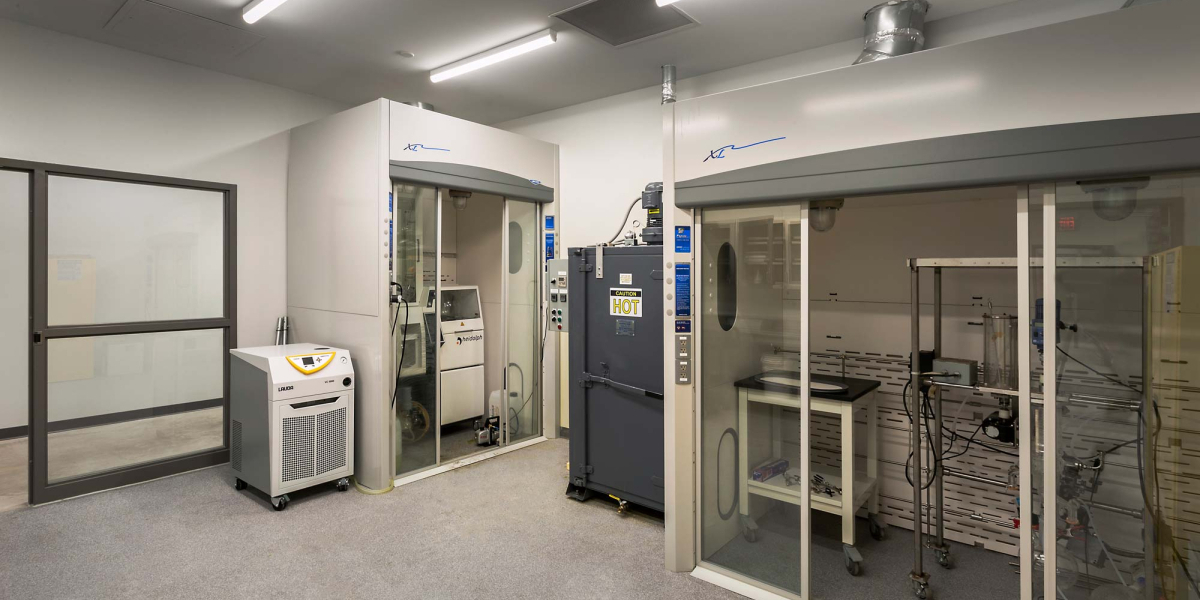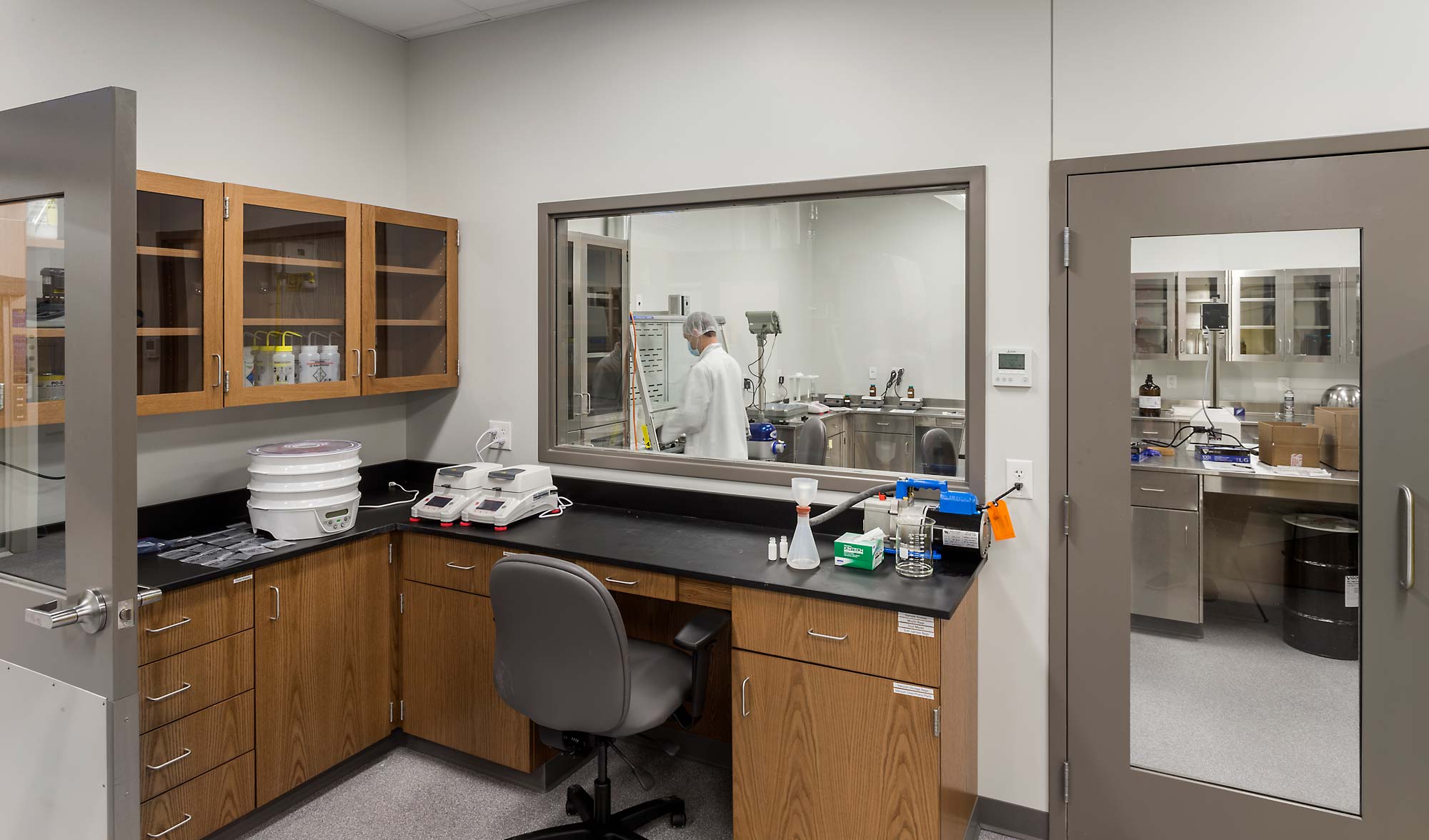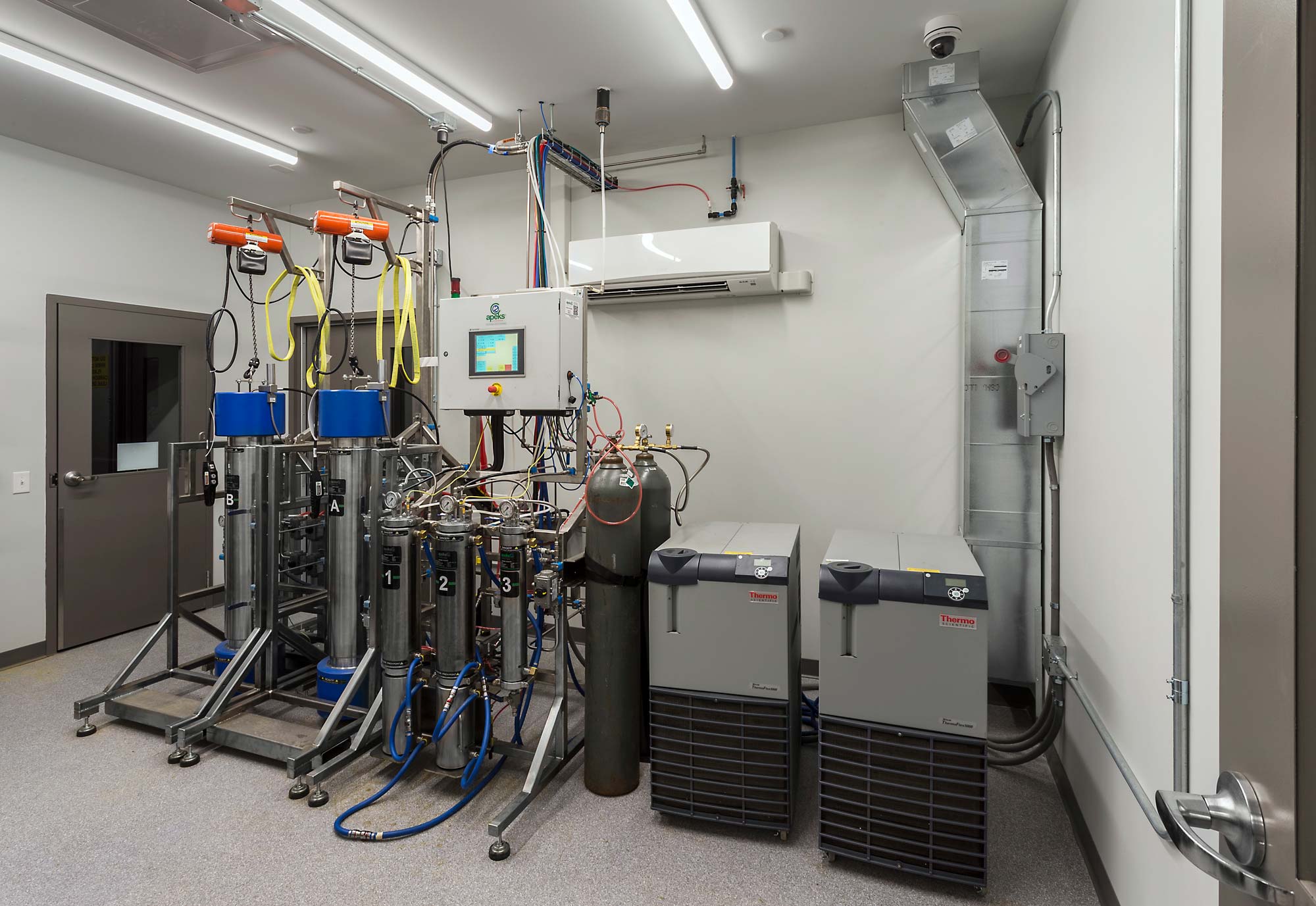Considerations for Building an Extraction Lab

When building a lab for extraction processes, there are many additional considerations to make beyond a standard lab. Of course, you need to keep overall size and shape of the space, building codes, and even fire codes in mind as well. Does the space need to be negatively pressured? Does it need to be sterile? Do you have a large enough supply of power to operate all of the equipment?
Ventilation and Space Considerations
When building out the space, you must complete a risk assessment, taking into account what materials you’re working with and if the space needs to be electrically classified as a Class I Division 1 or 2 space. Your organization’s Chemical Hygiene Officer must do this. If it is a Class I Division 1 or 2 room, which is frequently the case, you will need an explosion-proof fume hood rather than a standard hood. An explosion-proof hood is built with special precautions to help prevent sparks that can cause explosions or fire. Other fire protection considerations also need to be taken, such as sprinkler or other extinguishing systems, static grounding systems and means of egress.
The mechanical system assessment is a crucial part of the selection process. Can it support the CFM requirements of your extraction lab’s fume hood (or hoods)? Can it supply enough tempered air to replace the tempered air that’s being exhausted? Be sure your fume hood can be properly supported or you risk failing to properly exhaust the fumes. Determining your CFM requirements may also help identify the size of hood you need.
Keep in mind how you will get the hood into the lab also. While floor-mounted hoods often ship in sections, they are still very large. The building needs to be able to accommodate their size which can be a logistical challenge.

Regarding the layout of the lab, ensure you have enough room to accommodate and operate the extraction equipment as it is often sizable. Extractors are generally very tall. They need to be placed into a fume hood for safety, so you need a fume hood even taller than usual to house them. This is where a floor-mounted hood is needed, so it’s imperative that there is enough floor-to-ceiling space to fit the hood and its ductwork.
A key area of ventilation for floor-mounted hoods is near the floor. Fire marshals check that the installation is functioning properly, using an ASHRAE 110 test methodology called “flow visualization procedure.” This includes proper hose and cable management inside of the hood to avoid potential areas of dwell among the hoses and cords, which must be addressed prior to final certification and use. Excess cords and hoses on the floor of a fume hood can create dwell patterns on the floor of the hood that will result in a failure of the airflow pattern visualization test.
You’ve narrowed your hood selection to an explosion-proof, floor-mounted hood. Now what?
Consider what accessories you’ll need to accommodate your process. Do you need any service fixtures for gas, air, water, etc.? There are usually lines being run into the hood to supply the material being used in the extraction. Explosion-proof pneumatic stirrers are often used in place of electrically-powered equipment. Do you need pass-through ports to allow them easy access to the extraction equipment in the hood? Do you need an airflow monitor to ensure the proper CFM? What type of sashes do you need – horizontal-sliding that move left and right to allow the full height of the hood but only partial width, or vertical-sliding that move up and down to allow the full width of the hood but only partial height?
Related article: 4 things you need to know about airflow monitors

Equipment Location
Proper placement of the hood is important. Is it going to be near a vent or a door? Will it be in a high-traffic area? Be prepared to address these issues as they relate to airflow and the airflow requirements needed for your extraction process. Hoods used for extraction require an unusual amount of plumbing and electrical supply to each hood, so space between hoods (especially floor-mounted hoods) can be critical.
Labconco offers equipment for multiple stages of extraction, including explosion-proof floor-mounted fume hoods. We are here to help you find the right equipment – and answer the right questions during the planning stages – to ensure you have a successful and safe extraction lab.
Have a question about building an extraction lab? Contact one of our application specialists.
| chevron_left | The Right Fume Hoods: The Building Blocks of Zero Net Energy (ZNE) Lab Design | Articles | 6 reasons not to use a residential dishwasher to clean laboratory labware | chevron_right |





